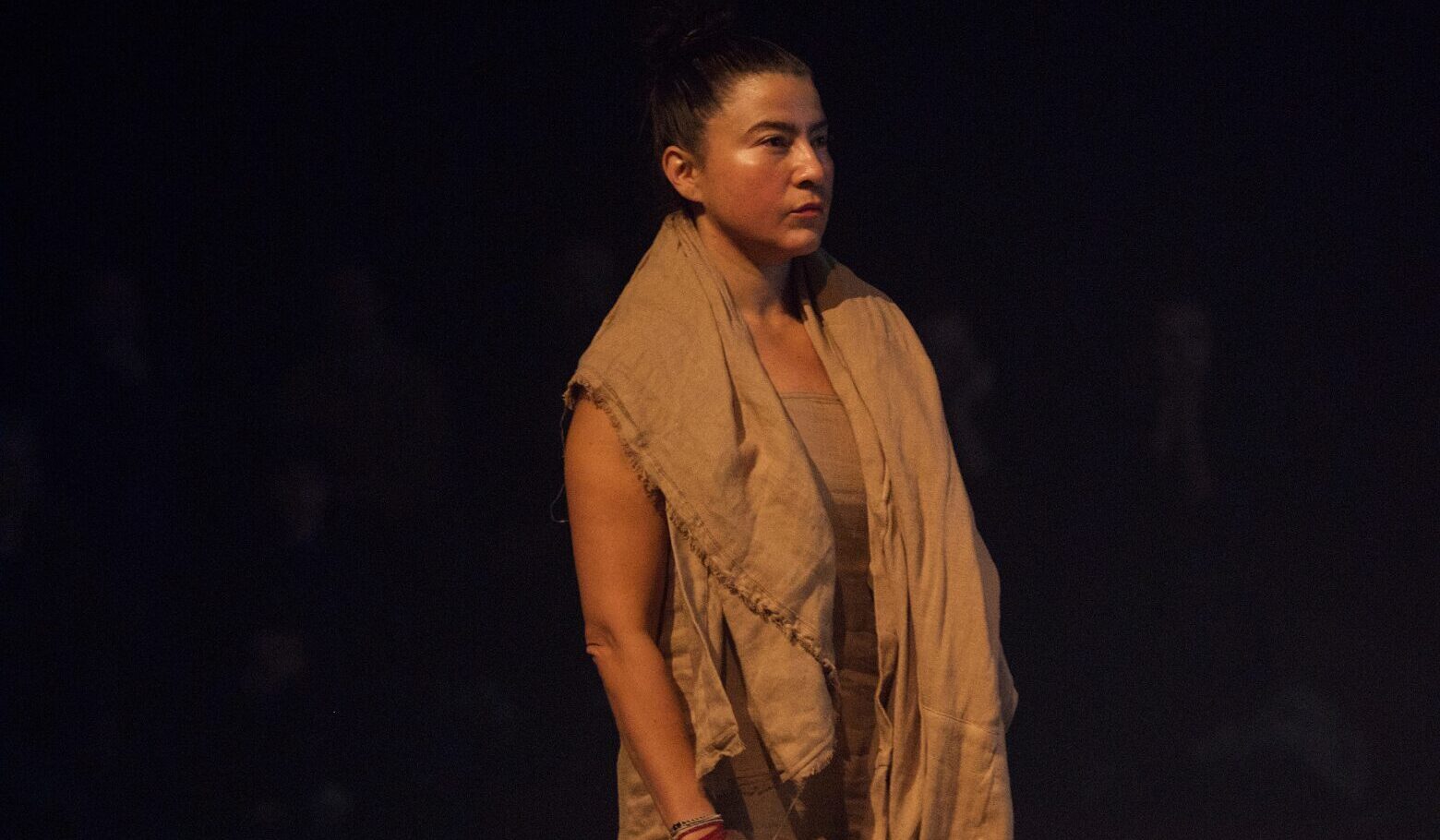Martha Hincapié Charry: Decolonizing Performance

When Colombian choreographer, curator, and decolonial activist Martha Hincapié Charry arrived in Berlin, she expected to find a thriving, inclusive arts scene. Instead, she found an absence—of Latin American voices, of Indigenous perspectives, of space for artists like herself. In response, she built her own.
As Artistic Director of Plataforma SurReal, an independent Berlin-based festival centering BIPOC artists from the Global South, Martha creates space where stories long pushed to the margins can take center stage. In her conversation with Anna Robb, she shares how her journey—from dancing under Pina Bausch to researching ancestral dances in Colombia—has shaped a practice rooted in memory, resistance, and radical reimagining.
A Legacy in Movement
Martha’s path began with a dream: to dance with legendary choreographer Pina Bausch. That dream took her from Colombia to Germany, where she studied at Folkwang University under Bausch’s direction. “I didn’t realize the magnitude of what I was experiencing at the time,” she recalls. “But being in that world gave me the courage to not only dance, but to create.” The influence of dance theater—its emotional depth, its interdisciplinary nature—sparked her transformation from performer to choreographer and, eventually, to curator.
Later, as a recipient of the Pina Bausch Fellowship, Martha would return to Colombia to study Indigenous dance, a pivotal moment in reclaiming a cultural lineage that had been fractured by colonization.
Creating the Table
Berlin, often celebrated for its diversity, proved to be more exclusive than expected. “I saw that artists like me—Latinx, from the Global South—were invisible in the performance scene,” she says. “There were no spaces for us as choreographers or curators.” Instead of waiting for an invitation, she built her own space: Plataforma SurReal.
The festival’s name plays on dual meanings—”surreal” and “real south”—reflecting the layered, often paradoxical realities of life in Latin America. It’s more than a showcase; it’s an act of cultural resistance. “We’re not just guests in the European art scene,” Martha insists. “We deserve to speak from our own perspectives and be part of the decision-making.”
Decolonization in Practice
The term “decolonization” has gained popularity in recent years, but for Hincapié Charry, it’s more than a buzzword. It’s a daily, lived process. “Colonial structures are embedded in everything—our relationships, our bodies, our minds,” she says. “Decolonizing the arts means disrupting these structures, not just performing diversity.”
She critiques cultural institutions that use decolonial language while continuing to uphold Eurocentric validation. Her work pushes beyond tokenism, advocating for systemic change—where artists from the Global South are not merely invited, but empowered to shape the cultural agenda.
Reclaiming Ancestral Knowledge
Much of Martha’s artistic practice is autobiographical, rooted in a personal confrontation with the loss of her Indigenous heritage. “My mother’s Indigenous culture is considered extinct in Colombia,” she explains. “There’s no community I can return to. I can only access this knowledge through books or museums.”
The death of her grandmother—a keeper of ancestral memory—was a turning point. “It hit me hard. I realized I needed to return to the roots,” she says. With the help of the Pina Bausch Fellowship, she spent time in Colombia’s Sierra Nevada de Santa Marta, home to several Indigenous communities, and later built connections with other groups across the Americas. “They welcomed me,” she says. “I began to remember, not just learn. It’s about unlearning colonial narratives and reconnecting through presence, listening, ceremony.”
This work also extends into quiet activism. Hincapié Charry played a key role in the restitution of two sacred masks, once held in a Berlin museum, now returned to the Kogi communities that use them in ritual dances. “That’s part of my work too,” she says. “Much of it happens away from the spotlight.”
Belonging, Identity, and the Long Path of Remembering
As a woman living between cultures, Martha admits the journey hasn’t always brought clarity. “I move between urban and natural worlds easily, but questions of identity and belonging are constant,” she reflects. Yet her exploration of Indigenous knowledge has grounded her—not just as an artist, but as a human being. “It’s changed all my relationships—with people, with land, with water, with food.”
Ancestral knowledge, she emphasizes, is vast. “Every time I remember something new, it opens a new portal. And I realize how much I still don’t know.” For her, the path of decolonization is both intimate and collective, a spiritual and political act that stretches beyond the stage.
Hope in the Work
Despite the challenges, what keeps her going is connection. Recently invited as a “Global Connector” at a performing arts gathering, she was reminded of the power of community. “Meeting people who are doing real, hard work for the planet and our future gives me life,” she says. “There are other realities happening—right now. And we can’t lose sight of that.”
Her dream? Simply to secure the funding needed to keep sharing these messages, especially in defense of the Amazon, where Indigenous defenders are risking—and losing—their lives to protect what remains. “We breathe because they fight,” she says. “We owe them more than we acknowledge.”
Back to Home
Editor's Note: At StageLync, an international platform for the performing arts, we celebrate the diversity of our writers' backgrounds. We recognize and support their choice to use either American or British English in their articles, respecting their individual preferences and origins. This policy allows us to embrace a wide range of linguistic expressions, enriching our content and reflecting the global nature of our community.
🎧 Join us on the StageLync Podcast for inspiring stories from the world of performing arts! Tune in to hear from the creative minds who bring magic to life, both onstage and behind the scenes. 🎙️ 👉 Listen now!
